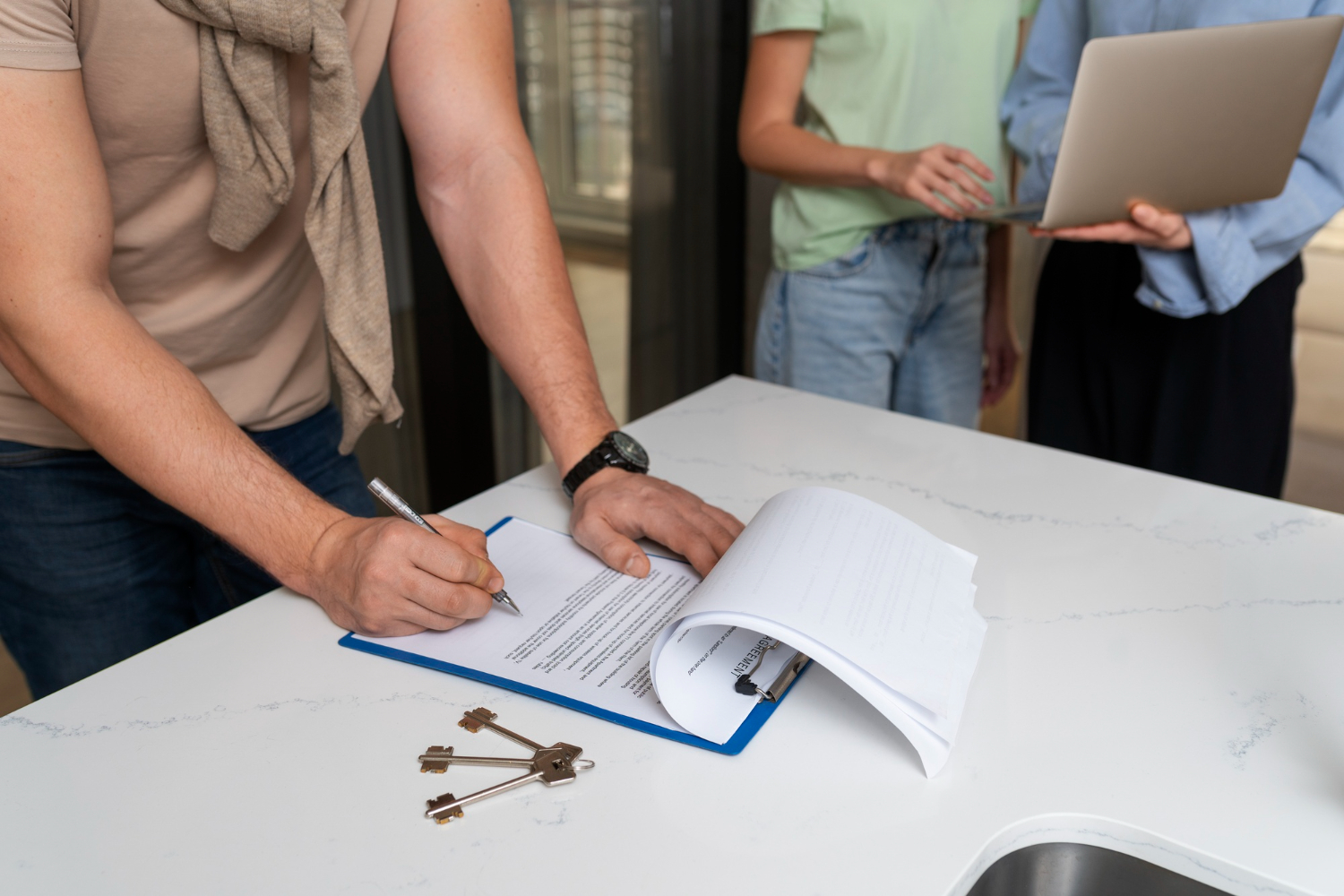Are you looking to soak up the cultural wonders of Germany? Dreaming of sampling Currywurst while you stroll through Berlin? If so, you’re not alone. Germany is a highly sought-after place to live, study, and work, and it’s always looking to add new talent to its workforce, making it a great place to find your dream job. If you’re thinking of relocating, there’s one key bit of paperwork you’ll have to take care of: the residence permit in Germany.
Whether you’re moving for work, interested in attending a university, or a refugee looking for a home, everything you need to know is in this handy guide. Keep reading to find out how to obtain your residence permit in Germany.
What is a Residence Permit?
The residence permit in Germany (Aufenthaltstitel) is a document issued to non-EU citizens who are living in the country. This includes anyone who comes from a country outside the European Union.
The permit looks like a credit card and contains essential information such as the citizen’s name, photo, and any key dates. The card also has an embedded RFID chip which stores a copy of all of this, as well as any extra information.
Depending on what your plans are for living in Germany, there are two kinds of permit you can apply for: limited and unlimited. We’ll break down the details for you here.
Limited Residence Permit
A limited residence permit in Germany (Aufenthaltserlaubnis) is issued to citizens who are looking to stay in Germany for a certain amount of time.
With this permit, citizens will also have to get a separate grant that gives them the right to work, which will then be included in the permit.
A limited residence permit will usually be issued to grant residency for the following reasons:
- Educational purposes
- Economic activity purposes
- Family reasons
- International law or on humanitarian or political grounds
Unlimited Residence Permit
An unlimited residence permit in Germany (Niederlassungserlaubnis), also known as the ‘permanent residence permit’ or the ‘settlement permit’, is issued to foreign citizens who are staying in Germany permanently, granting them the right to both live and work in the country under EU law.
A permit of this kind will usually be issued on the condition that:
- you have held a limited residence permit for a minimum of five years in Germany
- your livelihood is secure, and has been for five years
- you are permitted to work
- you have sufficient living space for yourself and your family: at least 13 square meters per person
- you have no criminal record
- you have a working knowledge of the German language, as well as the legal and social systems.
The German state also supports new arrivals with orientation and language courses, which is a great opportunity if you’ve just arrived and want to learn more about German society.
Visa vs Residence Permit
One thing to note: there is a difference between a visa and a residence permit. A travel, business, or student visa will cover you for a total of up to 90 days in Germany.
Who Needs a Residence Permit?
If you’re planning to stay in Germany for more than 90 days and you’re not an EU national, you will need to apply for a residence permit.
If you’re a tourist just looking for a short holiday in Germany, you don’t need to worry about a permit. A tourist visa will let you stay in Germany for up to 90 days – anything beyond that, and you’ll have to look at securing a permit.
What Documents are Needed for a Residence Permit?
Depending on your situation, there are a few things you’ll need when applying for a residence permit in Germany.
Applying for a Residence Permit to Work in Germany
If you’re a non-EU citizen looking to work in Germany, you’ll need the following to get started with your residence permit application:
- A valid passport (it’s always worth double-checking that your passport will remain valid for the entire length of your stay!).
- An up-to-date passport photo.
- Proof of income.
- Proof of employment. This is typically an employment contract. If you’re self-employed, you’ll need a few additional documents like a CV and a financial plan.
- Proof of German health insurance.
- Proof of residence Here’s where your address registration (Anmeldung) will come in handy.
- Your completed residence permit application form (Antrag auf Erteilung eines Aufenthaltstitels).
- Your completed employment permission form (Antrag auf Erlaubnis einer Beschäftigung).
- Your completed job description form (Stellenbeschreibung).
You will also need between €50 to €110 to cover your application fee.
Applying for a Residence Permit to Study in Germany
If you’re a non-EU citizen wanting to study in Germany, you’ll need the following to apply for a residence permit:
- A valid passport.
- An up-to-date passport photo.
- Proof of health insurance.
- Proof of residence.
- Your certificate of admission to your course.
- Your completed residence permit application form.
- Proof of secure livelihood. Of course, this might prove tricky for some students, but don’t worry, proof can be either a German bank account containing at least €9,936, a notarized declaration of commitment from a parent, carer, or other third party that guarantees they will support you (along with proof of their income over the past six months), or a scholarship.
You will also need between €60 to €110 to cover your application fee.

EU Nationals
If you’re an EU citizen, you don’t need a visa or a permit to live and work in Germany. All you need to do is register at your local German registration office, just as non-EU citizens are required to do.
Refugees From Ukraine
If you had to leave your home and are looking to live in Germany, the requirements will differ slightly. Germany has recently made it much easier for people arriving from Ukraine to enter Germany without a visa.
Germany, along with the European Union, provides protection to war refugees. This means you won’t need to apply for asylum, instead, there is a faster way to receive a residence permit and claim social benefits. For more information, visit germany4ukraine.de.
Where Can I Find Temporary Housing in Germany?
If you’re a refugee looking for temporary housing in Germany, the new Helfende Wände platform is designed to support you. Finding the right home is just a few clicks away, with safe, private accommodation in Germany sorted quickly and easily. To find out more, visit helfendewaende.de.
Getting Started in Germany
And that’s everything! Whether you want to see the Fernsehturm in Berlin, explore the Nymphenburg Palace in Munich, dance at the Elbphilharmonie in Hamburg, or shop at Die Ziel in Frankfurt, you’ll be free to explore anywhere you please with your residence permit.
It might sound complicated at first, but don’t worry – once you get started, you’ll be finished and ready to enjoy your new residency in Germany before you know it.
Finding a Home in Germany
Finding a new home can be a challenge, our article on finding rental homes will give you some pointers for your search.
Once you’re ready to find your perfect home in Germany, get started on Wunderflats, the ideal rental solution for anyone looking to live in one of Europe’s most beautiful countries. Fully furnished apartments, smart contracts, and support with registering your address are all included in our service.
Take the first step on wunderflats.com.









